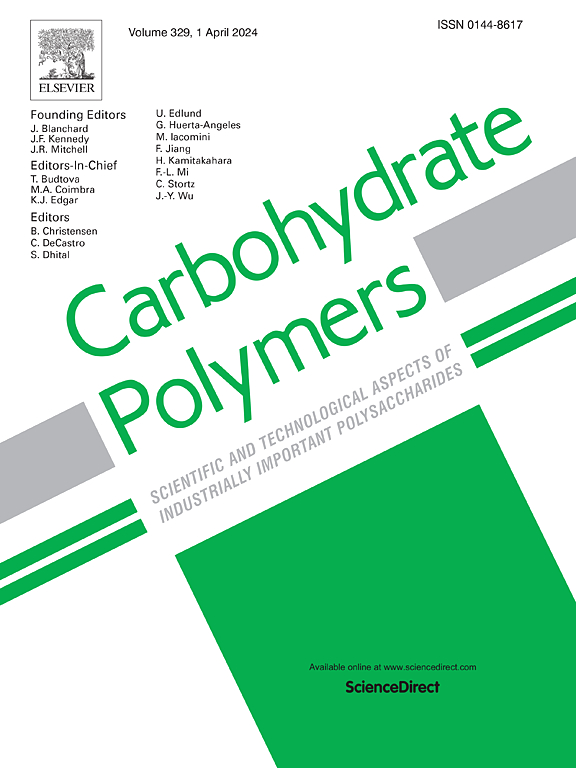Reinforced enzyme mineralized chitosan hydrogels with superior mechanical and osteogenic properties
Published:19 November 2024
DOI: 10.1016/j.carbpol.2024.123032
Yao Wang, Nihui Zhang, Fang Wu
Abstract
As a natural cationic polymer material, the application of chitosan hydrogel for bone tissue engineering has been greatly limited due to its poor mechanical strength. Enzymatic mineralization has drawn increased attention to effectively improve the mechanical properties of hydrogels. In this study, carboxymethyl chitosan (CMCS) hydrogels cross-linked with different concentrations of genipin (2.5?%, 5?% and 10?%) were prepared and further mineralized through enzyme-induced biomimetic mineralization. The mechanical properties of the CMCS hydrogels were significantly increased as a result of mineralization, showing improvement of 1200–1500?% on storage moduli, and even exhibiting certain tensile behavior with the elongation rate of 30–35?%, likely due to the uniform formation and small size of mineralized products. Interestingly, the cationicity of chitosan also exerted an important modulation effect and the mineralization behavior and mechanical properties of mineralized hydrogels. In addition, the enzymatic mineralized hydrogels showed enhanced biocompatibility and osteogenic differentiation in-vitro, likely due to its superior mechanical properties and the introduction of calcium phosphate biominerals. In vivo experiments further suggest excellent bone-forming activity for the enzymatic mineralized hydrogels. Overall, tuning cationicity and enzymatic mineralization provide an effective approach for the preparation of chitosan hydrogels with superior mechanical and biological properties for bone tissue engineering application.





